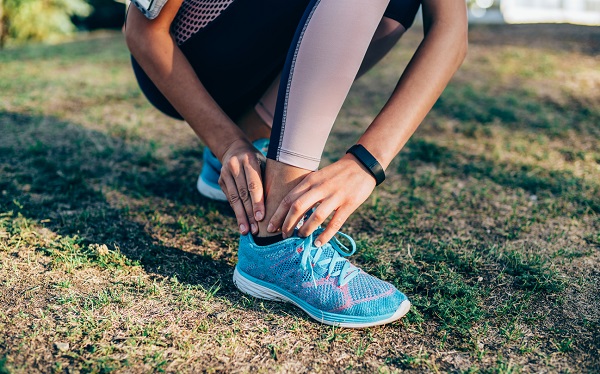-
Race day has arrived, but do you have a plan? All the effort in training can be undone very quickly with the wrong nutrition on race day, especially if you try anything you’re not used to. A good strategy is to break race day into three main segments – pre-race, during and post-race.
Pre-race
The aim of the pre-race meal is to top-up the fuel storage, or carbohydrates, in your body. It’s best to have foods that are familiar to you, as the pre-race meal can make or break your opportunity to reach that personal best.
About 90-120 minutes before, begin with a carbohydrate-based meal that is low in protein, fat and dietary fibre. We cut these down because at this stage they delay digestion, taking blood away from the working muscles and into the intestines. If you add the jolting movement that comes with running, you’ve got a recipe for disaster!
Easy to digest options can include yoghurt and fruit with the skin removed, a small bowl of ‘low-ish’ fibre cereal with fresh fruit, a couple of slices of toast, pikelets or dry biscuits with jam or honey. If you’re feeling the pre-race jitters, homemade smoothies, yoghurt or sports drinks can also be a great option.
Make sure you’re well hydrated leading up to the race. It’s a common mistake to overdrink on the day so avoid the unwanted toilet stops by only having small amounts of fluid before the start gun.
During the race
If you’re running for less than an hour there is generally no need to consume any carbohydrates during the race, but you will if you’re doing the half or the full marathon. This is because the body has only enough carbohydrate fuel to last around 60-75 minutes of exercise.
The key is to delay the burning of energy as long as possible by adding fuel to the stockpiles in your body. Sports foods like carb gels/confectionary and sports drinks can help here. They are designed for rapid digestion, sending glucose through the bloodstream and into exercising muscles.
It’s important to note that timing is crucial, as carb gels need to be taken with 100-150 ml of water to help speed up digestion.
Have a plan of attack and spend some time analysing the course map, highlight the points of the track where you will need to take on added fuel. As a starting point, aim for a minimum of 30 g of carbohydrate or roughly one gel every 45 minutes.
Keep hydration in the back of your mind, as getting in enough fluid and electrolytes is important. However, it's a fine line between rehydrating and overhydrating, so watch the pace your body hydrates and plan how much water you’ll have during the race.
Post-race
Now that the race is over, it’s time to focus on properly slowing down your body into a healthy state. The best way to do this is to follow the Four Rs to Recovery:
- Repair and refuel by consuming protein and carbohydrate, within 30 minutes of finishing.
- Rehydrate with water or milk, as milk will help replace fluid, carbohydrate, electrolytes and some protein.
- Rest up! It’s important to practice any nutrition a number of times to see how your body copes, then choose the pre-race meal that suits you best. Remember, not trying anything new is essential when being prepared for this big day!
Your race day eating plan

-
Stretches for gym enthusiasts
8 stretches to help you cool down from workouts
-
Stretches for office workers
Stretch out your back and relieve stress
-
Stretches for runners
Stretch your legs, hips and back after a long run
-
How to walk 10,000 steps
Discover how to easily reach your goal of 10,000 steps daily.
-
Everything you need to know about parkrun
Been wondering what a parkrun looks like? Where do you go? What do you do? How do you sign up? Find out here.
-
Five ways to exercise when on a budget
You don’t need to spend money on gym memberships just to meet your fitness goals. Here are five free ways to stay healthy and active when you’re living on a budget.
Subscribe to receive the best from Live Better every week. Healthy recipes, exercise tips and activities, offers and promotions – everything to help you eat, move and feel better.
By clicking sign up I understand and agree to Medibank's privacy policy






